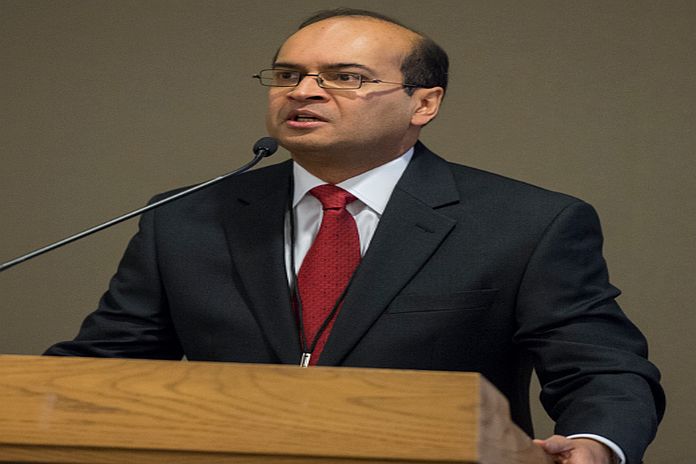As 2020 draws to a close, many of us cannot wait for this annus horribilis to end. And for good reason: this year has seen more than a million and a half COVID-19 deaths; an economic collapse far greater than that of the 2008 financial crisis; a boiling-over of resentment against decades of racial and social injustice; record numbers of wildfires decimating millions of acres of pristine forests; and locust plagues of Biblical proportions.
Yet, 2020 also gives us reason for hope. The development, within a few short months, of at least three COVID-19 vaccines that promise a high degree of efficacy is nothing short of miraculous: a great triumph of medical science, technology, and yes, globalization.
Consider how impossible the discovery and distribution of these vaccines would have been without the cross-border exchange of ideas, goods, and services. Between the research labs and the researchers as well as the testing and manufacturing (including the various ancillary materials such as glass vials and syringes and special refrigerants), at least a dozen or more countries have already been involved in the development and production of these vaccines.
Toward a better world
One hundred years ago, the famed Spanish artist José Marià Sert laid out a vision for a better world on the walls of the Council Chamber in the Palais des Nations in Geneva, Switzerland—seat of the first great experiment in international cooperation, the League of Nations, and the current European offices of the United Nations. His murals depict all that separates fellow human beings war, hatred, cruelty, vengeance, exploitation, injustice and all that brings them together peace, liberty, and freedom from drudgery and enslavement.
There is hope, a mother and child standing astride defunct cannons, reveling in peace while crowds joyously hurl away their guns now that wars have ended; scientific progress, doctors liberating humanity from the scourge of disease; social progress, slaves shattering their chains; and technical progress, technology relieving humans from physical toil and bringing the promise of economic prosperity. On the ceiling, towering above the chamber, are five great, sinewy giants, allegories of the continents, reaching across the room with clasped hands, drawing the peoples of the world together—as the only means of achieving a brighter future for all.
Of course, it was the end of a war that gave birth to the IMF, an institution dedicated to international monetary cooperation, thus helping to avoid trade and currency wars, and providing the basis for jobs for people across the world amid sound economic growth. The form of that cooperation and the nature of the shocks impinging on the world economy has evolved considerably in the 75 years since the IMF was established.
The great insight of the founders was that, regardless of the specific disturbances, the oil price hikes of the 1970s, the developing country debt crisis of the 1980s, the capital account crises and the transformation of the centrally planned to market economies in the 1990s, the current account imbalances, global financial crisis, and the Great Recession in the 2000s, or the pandemic and Great Lockdown this year—both the shocks themselves and the national policy responses to them inevitably create cross-border spillovers that often result in tensions between countries.
Resolving them requires cooperation, not confrontation: when each country tries to be first, all end up as last.
Onward and upward
As the COVID-19 pandemic unfolded, the IMF went into overdrive, even as it scrambled to re-organize operations for its staff to work from home helping its members secure urgent financing and facilitating debt relief so countries could prioritize health expenditures. But the IMF’s work and that of its membership is just beginning.
Once there is widespread distribution of the vaccine and the recovery gets underway, there are bound to be economic and financial dislocations as governments and societies grapple with the legacies of the global financial crisis, the pandemic, and the Great Lockdown, and strive to rebuild a better, more equitable, and more environmentally sustainable world. Helping to manage the international economic repercussions of these dislocations manifested through exchange rate dynamics, net and gross capital flows, and asset price movements is very much the bread and butter of the IMF’s work, and will be a vital part of its contribution to crafting a better world for tomorrow.





